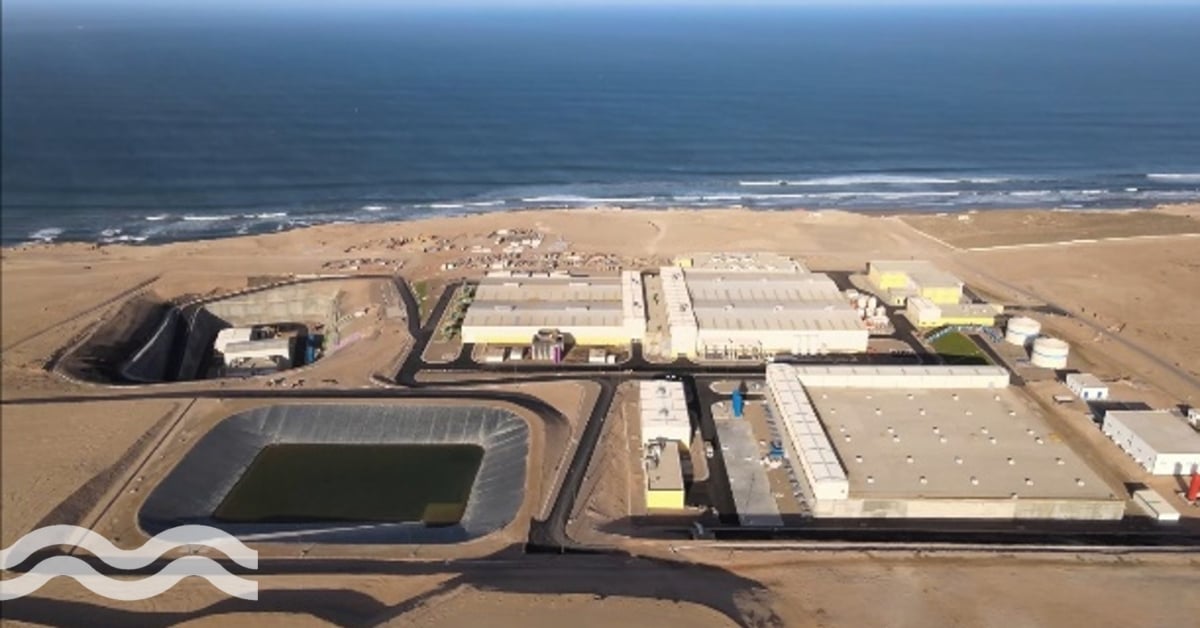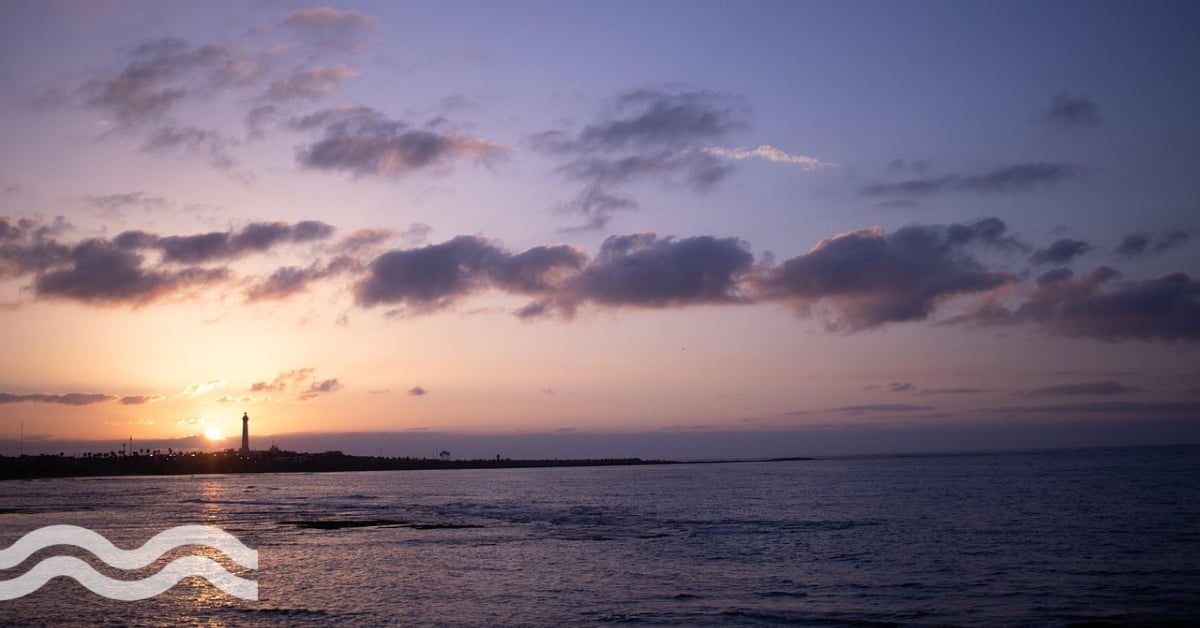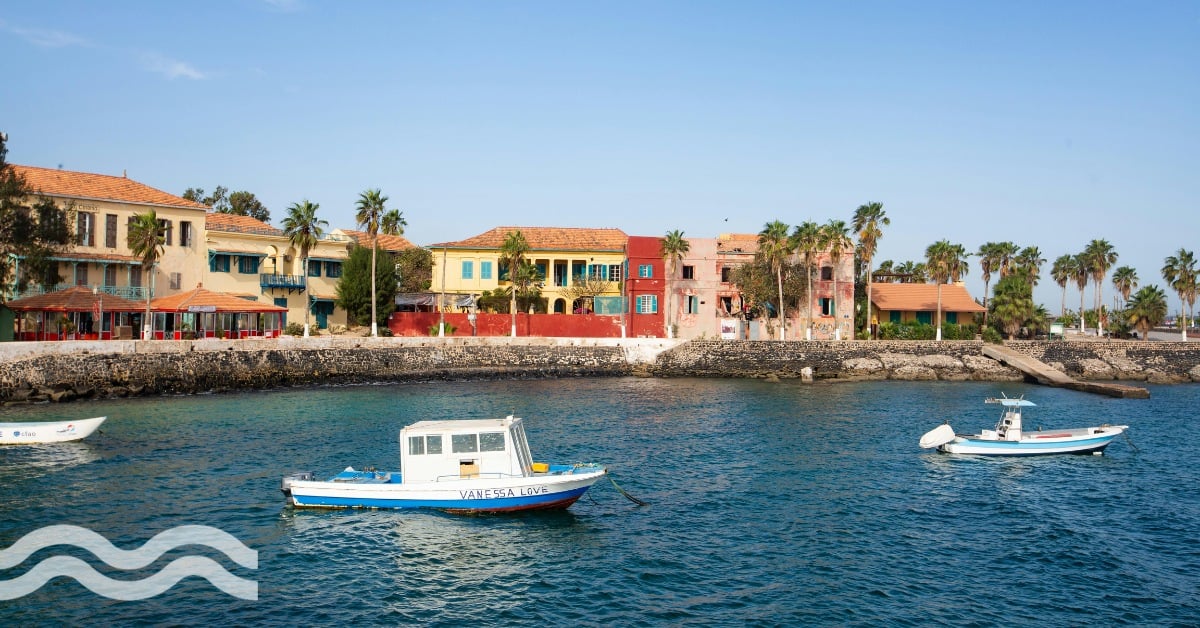SDG update: billions will still lack water and sanitation access by 2030
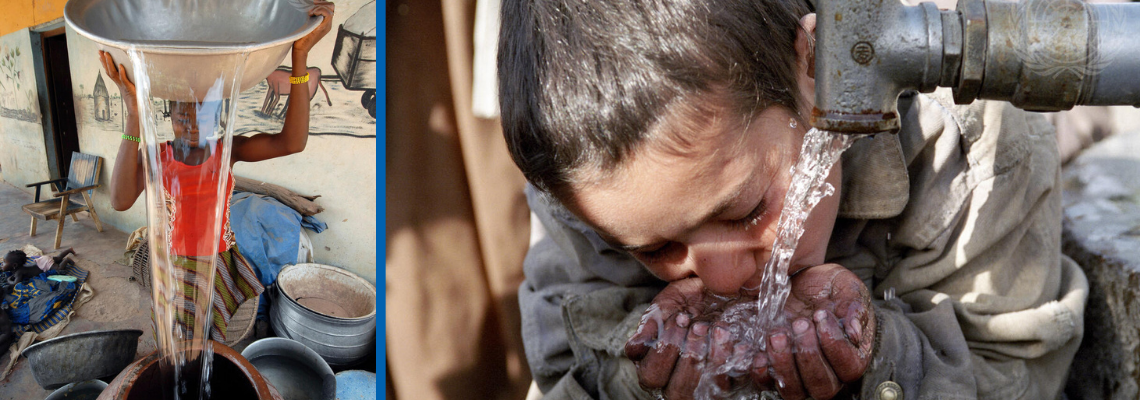
The latest report from the UN on the Sustainable Development Goals makes for uncomfortable reading on water progress. Aquatech Online takes a look.
A water reality check
Unless progress picks up, billions of people will continue to lack access to safely managed drinking water, sanitation and hygiene services by 2030.
That’s according to a 2022 update report on the Sustainable Development Goals (SDGs) from the United Nations (UN), which made for bleak reading, especially on water.
The original SDG 6 (Clean Water and Sanitation) states that for 2030, we will “ensure availability and sustainable management of water and sanitation for all”.
However, unless the pace of progress is quadrupled, the targets will not be met. The UN stated that at current rates, by 2030:
- 1.6 billion people will lack safely managed drinking water
- 2.8 billion people will lack safely managed sanitation
- 1.9 billion people will lack basic hygiene facilities.
The report results may not shock many – with the writing on the wall even on World Water Day 2019, where the UNESCO director-general warned that at the current rate of progress, “billions of people will remain unable to enjoy access to water and sanitation”.
“To recover from the COVID-19 pandemic and deliver global sustainability, we need an urgent rescue effort for the SDGs,” said António Guterres, secretary general of the United Nations.
“We must deliver on our commitments to support the world’s most vulnerable people, communities and nations.”
Drinking water and sanitation access progress
According to the report, the world will reach 81 per cent coverage by 2030, missing the target and leaving 1.6 billion people without safely managed drinking water supplies. This has increased from 70 per cent in 2015 to 74 per cent in 2020.
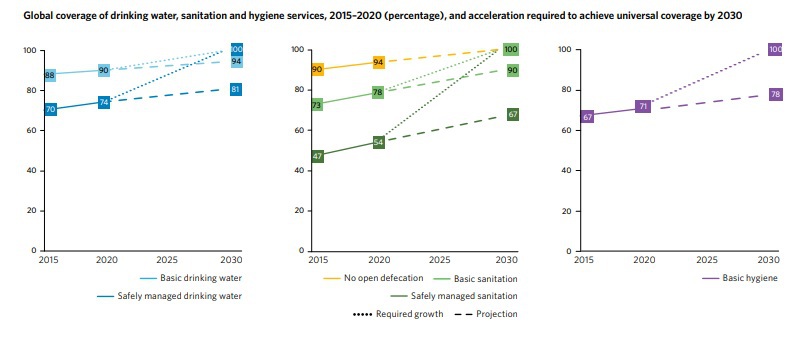
It’s estimated that eight of the 10 people who lack even “basic drinking water service” live in rural areas.
“For at least three billion people, the quality of the water they depend on is unknown due to a lack of monitoring..”
On sanitation, the news is only slightly brighter. By 2030, the world is on track to eliminate open defecation, yet progress remains off track on broader access to sanitation.
The world population "using safely managed sanitation services" is expected to reach 67 per cent coverage by 2030. This is an increase from 47 per cent in 2015 to 54 per cent in 2020.
Impact on water quality
The coverage of water quality was also noticeable in the report. For at least three billion people, the "quality of the water they depend on is unknown due to a lack of monitoring".
The lack of data goes way beyond surface water, too.
“Data are also lacking on groundwater, which often represents the largest share of fresh water in a country. Out of all reporting countries, only 60 per cent included information about groundwater,” said the UN.
“Over the past 300 years, over 85 per cent of the planet's wetlands have been lost.”
Other “threats” to environmental water quality include agricultural and untreated wastewater, as they “release excess nutrients into rivers, lakes and aquifers, damaging ecosystem function”, the report added.
One suggested solution included identifying water quality issues early with well-designed monitoring systems. This could allow mitigation measures to be introduced before severe deterioration occurs.
The alarming impact on wetlands
Wetlands were credited in the report as the most biologically diverse of all ecosystems and breeding grounds for 40 per cent of the world’s plant and animal species.
However, inappropriate management and unsustainable use have resulted in the loss of these natural habitats providing ecosystem service. Furthermore, the degradation of wetlands releases stored carbon, which contributes to climate change.
Over the past 300 years, over 85 per cent of the planet’s wetlands have been lost, mainly through drainage and land conversion, with many remaining wetland areas degraded.
Furthermore, since 1970 a total of 81 per cent of species dependent on inland wetlands have declined faster than those relying on other biomes, and an increasing number are facing extinction.
Other water-related ecosystems across the planet – such as lakes, rivers and reservoirs – are also changing rapidly. One in five river basins has experienced high (i.e., above natural) fluctuations in surface water over the past five years.
More information on the UN SDG progress report can be found here.
